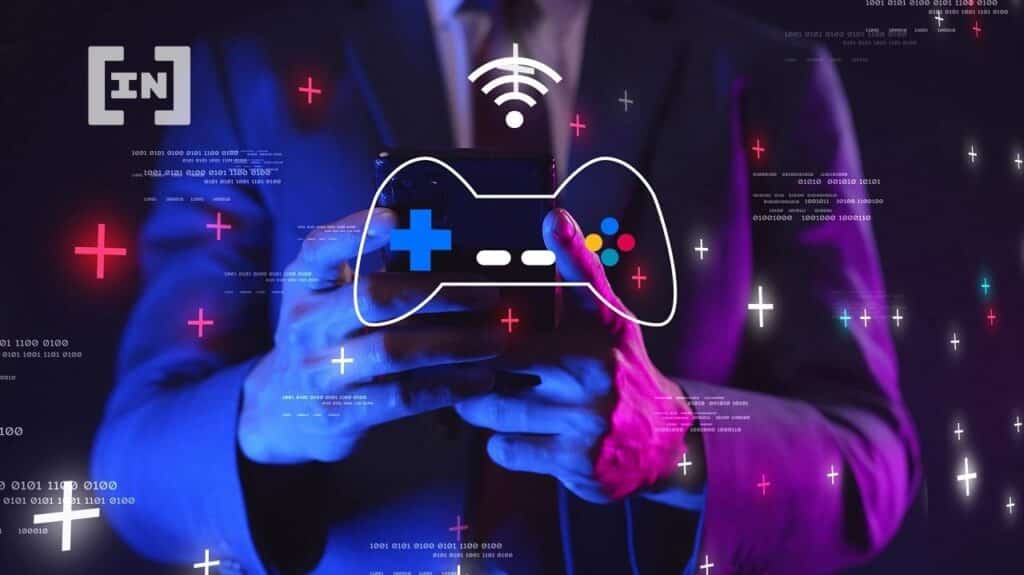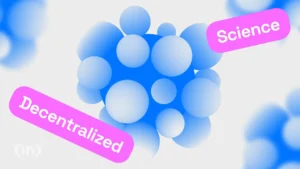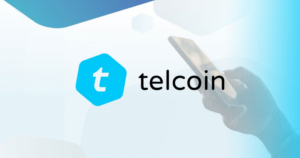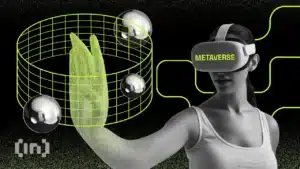Blockchain’s disruptive impact on gaming

Blockchain technology is at the forefront of all innovations in the world today. An innovation in its own right, blockchain was initially associated with cryptocurrencies but is quickly disrupting other industries.
From finance and healthcare to supply chain management and voting systems, we are experiencing the impact of blockchain technology on a seismic scale. The core principles of transparency, security and decentralization have been and continue to be important recipes for change. Blockchain has empowered individuals and introduced new ways of interacting with the world around us.
One of the industries most affected by blockchain technology is the gaming industry. This industry, valued at over $200 billion, is no stranger to disruption. From the rise of mobile gaming to the explosion of eSports, the gaming industry has adapted to new technologies and other consumer preferences.
Now, the concept of play to earn (P2E) is gaining momentum. This game model gives players ownership of in-game assets and the opportunity to earn real-world rewards through game play.
According to Dapradar, by January 2024, the number of unique active wallets (UAW) with P2E games will reach 1.5 billion every day. This was 28% of the overall industry activity for that month and highlighted the growing user base in this space. This shift is drawing a new wave of users into the world of cryptocurrency while shaping the landscape of gaming and eSports. In this article, we dive into the disruptive nature of blockchain technology in gaming.
Play to Earn (P2E)
The advent of P2E games has brought about a fundamental change in the player experience. Traditionally, players devoted their time and resources to virtual worlds, earning valuable in-game items and characters within gameplay. Blockchain technology has disrupted this model by introducing the concept of ownership.
Players can now hold unique digital assets within a game via NFTs. These assets are not exclusive to the game; They reside on a blockchain, a secure and transparent digital ledger that allows players to freely trade, sell or rent on secondary marketplaces. This creates a dynamic player-driven economy within the game, promoting deeper engagement and giving players a real sense of ownership over their digital experience.
In the year By 2022, the global P2E games market will be valued at $32.9 billion. This figure is projected to grow to USD 88.6 billion by 2028 at a CAGR of 17.93%. However, the dispossession does not stop there. The P2E model encourages long-term engagement and rewards skilled players for commitment.
Consider earning cryptocurrency or other valuable tokens through your gameplay, competing for real-world prizes, or accumulating resources that can be sold in-game. With P2E, gamers can monetize their passion for gaming, blurring the lines between entertainment and work.
The rise of the P2E game is just the beginning. As blockchain technology continues to evolve and integrate into the gaming experience, even more new models will emerge. Some already exist; Move-to-Earn (M2E), Watch2Earn (W2E) etc. This disruption will democratize gaming, empower players and create new revenue streams for the industry as a whole. The future of gaming is being shaped by blockchain, and the possibilities are vast and exciting.
NFT-powered adventures in a P2E game
According to Statista, the global non-fungible token (NFT) market size was estimated to be worth a staggering $41 billion by 2021—a size that dwarfs the total value of the entire global art market ($50 billion by 2020)—and is expected to experience. Continued extensive growth.

NFTs are revolutionizing the concept of ownership. These unique digital tokens function as ownership of in-game assets, turning them into valuable assets from the game's building blocks. Imagine a virtual world where your weapon is not just a digital weapon, but an NFT, which you can customize, upgrade and even sell to other players in a secure marketplace.
Rewards like these allow players to invest in virtual experiences, promote deeper relationships, and feel a sense of true membership in the game world.
The P2E model goes one step further. By integrating NFT mechanics into gameplay, players can earn rewards for their achievements. This can range from conquering challenging dungeons to fighting and slaying legendary beasts to participating in tournaments and crafting rare items.
These rewards, often in the form of cryptocurrencies or exchange tokens, can then be spent on upgrading their character, buying new in-game assets, or even for real-world value. This creates a compelling economic dynamic where players are actively contributing to and profiting from the game's ecosystem rather than simply consuming content.
NFT-powered P2E games like Sidus Heroes are a prime example of this trend. Heroes of Sidus is a futuristic multiplayer online role-playing game (MMORPG) that harnesses the power of NFTs to create a truly player-driven economy. By using NFTs in the game, players can have in-game content that opens doors to trading, selling or renting these assets. This will ultimately create a vibrant marketplace fueled by blockchain technology.
Democratizing eSports with Blockchain Technology
Blockchain technology's impact on gaming extends beyond NFTs. Companies like QORPO are using this technology to revolutionize the world of eSports. QORPO is at the intersection of blockchain technology and eSports, aiming to make professional-level competition accessible to a wider audience. Their flagship project, Civil Clash, is a superhero shooter powered by blockchain technology that combines fast-paced action with a robust eSports infrastructure.

This is where things get more interesting. Traditionally, aspiring eSports stars face high barriers to entry, often lacking the resources or connections to compete at the highest level. QORPO's blockchain technology could change that. By creating a fair and transparent system, Citizen Clash allows talented players to showcase their skills and earn rewards that can propel them onto the global eSports stage.
This approach It has the potential to disrupt the eSports industry, which reached 532 million viewers worldwide in 2022 and is expected to reach more than 640 million viewers worldwide by 2025. Using blockchain, QORPO is paving the way for a new generation. eSports stars, and push for a more inclusive and fair competition scene.
Bridging the gap between traditional and blockchain games
P2E has the potential to bridge the gap between traditional and blockchain gaming experiences. Traditional gamers often value high-quality graphics, intuitive interfaces, and engaging storylines. Blockchain games, on the other hand, may prioritize complex mechanics or underlying technology over user experience.
New P2E projects recognize this need for accessibility. Alongside the benefits of blockchain technology, they are creating a comfortable environment for both seasoned players and newcomers to the crypto space by focusing on a user-friendly interface and engaging gameplay.
Imagine an open-world MMORPG that boasts stunning visuals and a rich narrative while simultaneously allowing players to capture and trade unique in-game items via NFTs. This approach addresses core needs while introducing traditional players to exciting P2E opportunities.

In the last two sentences, I described Outlanders. Outlanders is an open world MMORPG that bridges the gap between traditional and blockchain gaming. This project understands the importance of user experience, providing intuitive interfaces, engaging gameplay and high-quality graphics for both experienced players and newcomers to the world of cryptocurrency.
This focus on user experience is critical to the mainstream adoption of P2E games. By removing technical barriers and offering familiar game mechanics alongside the benefits of blockchain technology, these new projects can attract a wide audience. This not only expands the player base for P2E games, but also fosters a more diverse and active gaming community. Ultimately, it leads to a stronger and more successful future for the entire P2E ecosystem.
The future of gaming is P2E.
The rise of these P2E games hints at the future of gaming. Blockchain technology doesn't just create new experiences; It's about empowering players, increasing community ownership, and creating a more fair and rewarding gaming landscape. As the industry continues to evolve, we can expect to see more new P2E models changing the way we play, compete, and make a living in the virtual world.
Disclaimer
This article is sponsored content and does not represent the views or opinions of BeInCrypto. While we adhere to The Integrity Project's guidelines for impartial and transparent reporting, this content was created by a third party and is intended for advertising purposes. Readers are advised to independently verify information and consult with experts before making decisions based on this sponsored content. Please note that our terms and conditions, privacy policies and disclaimers have been updated.













